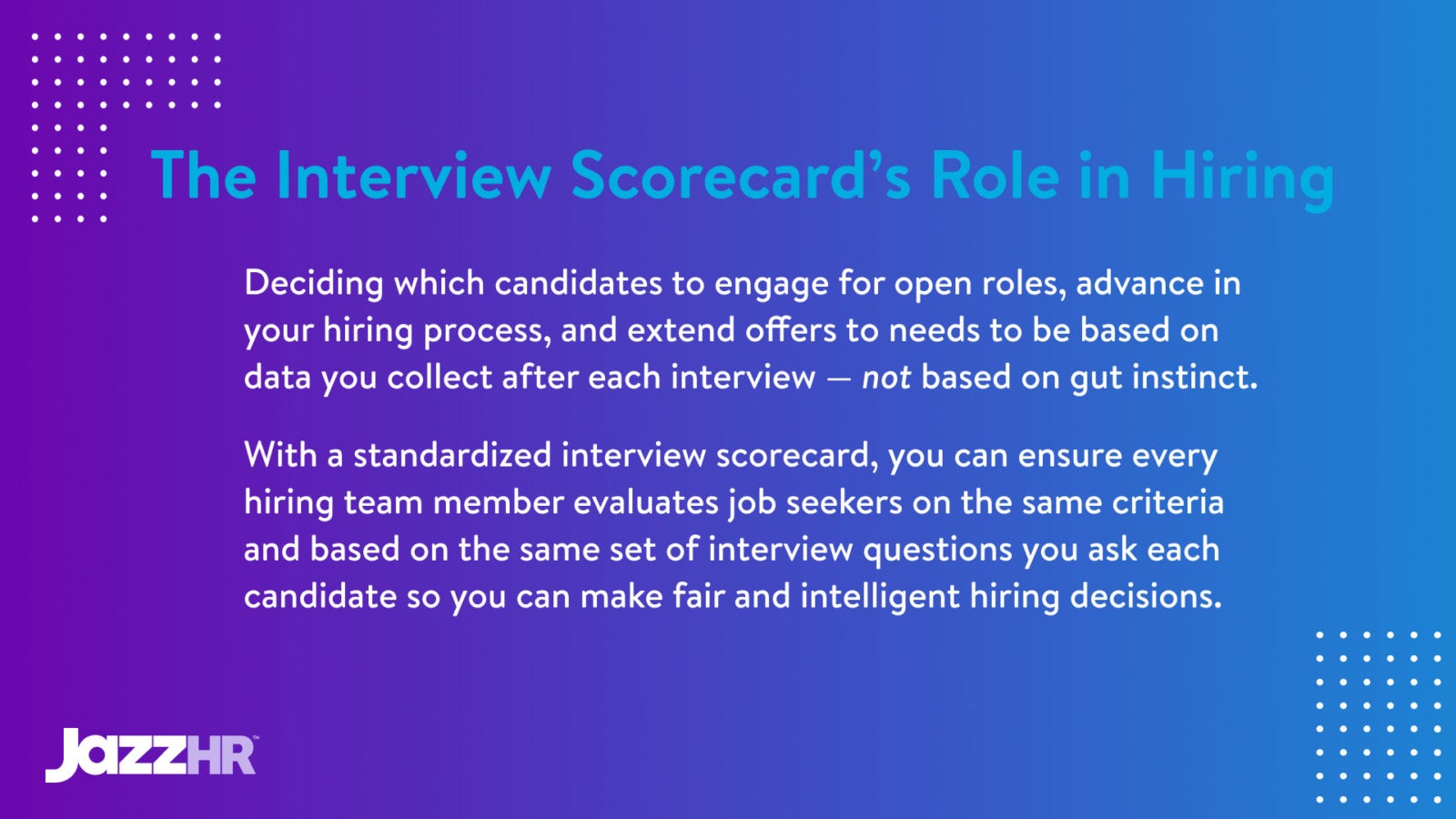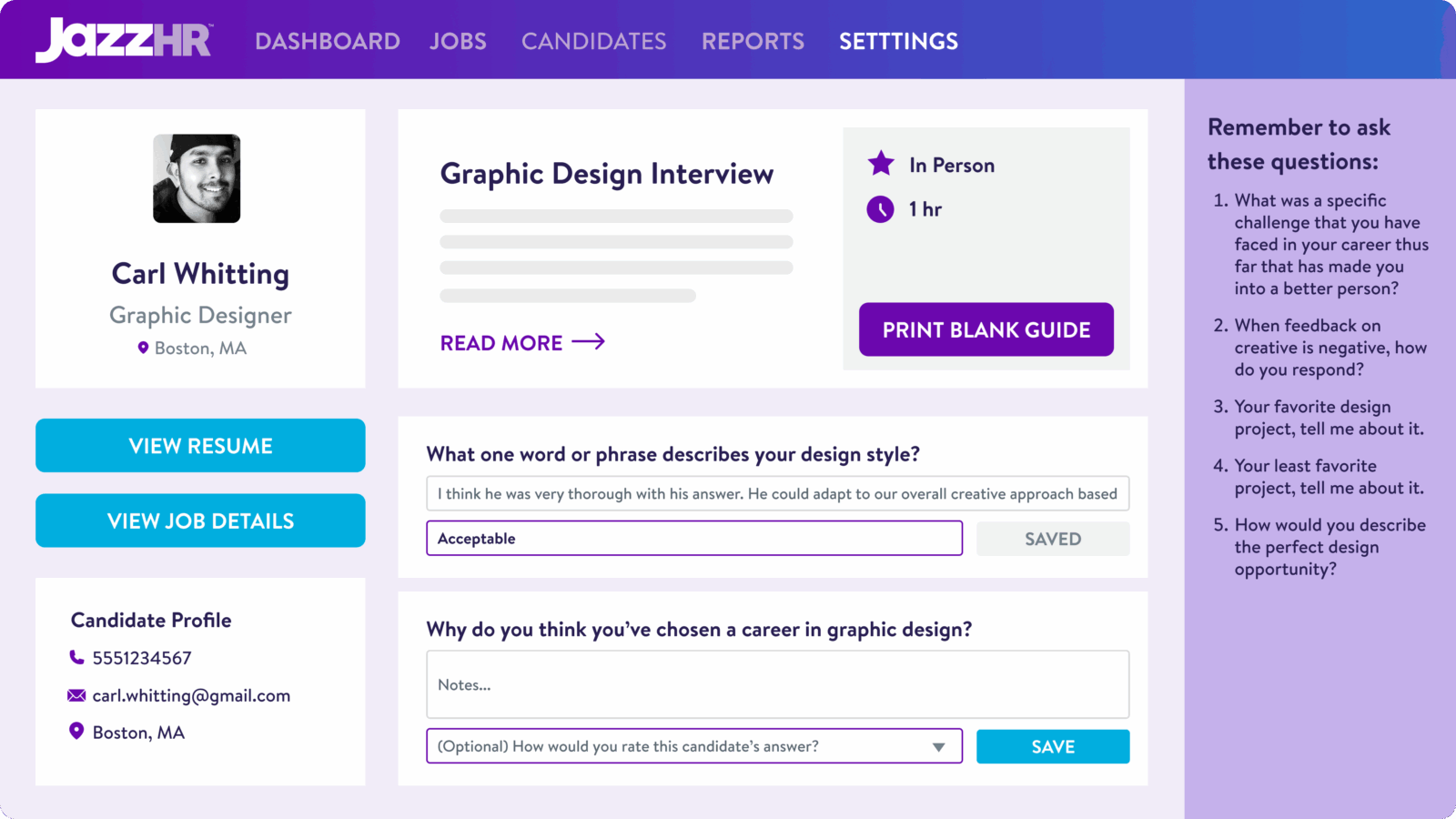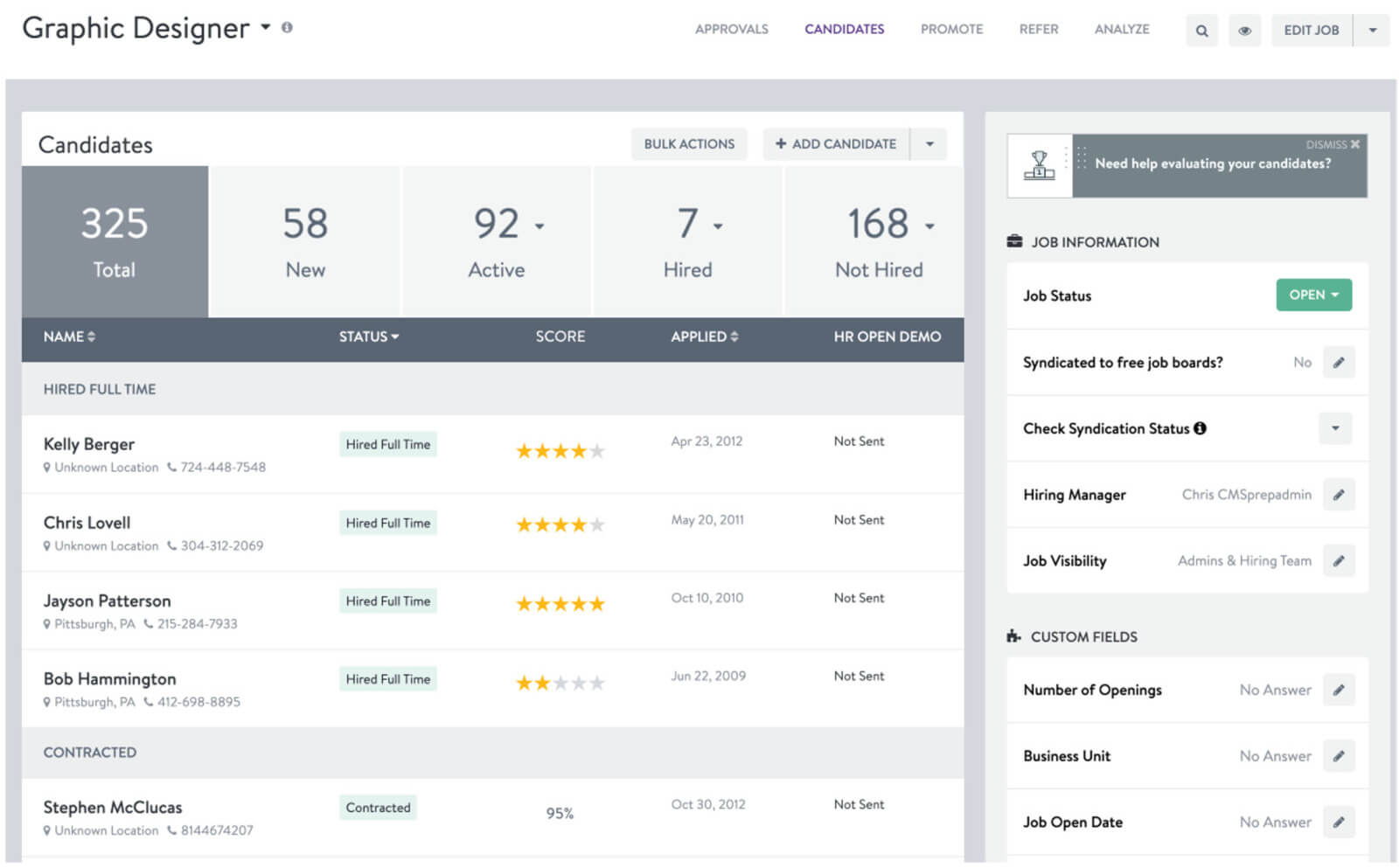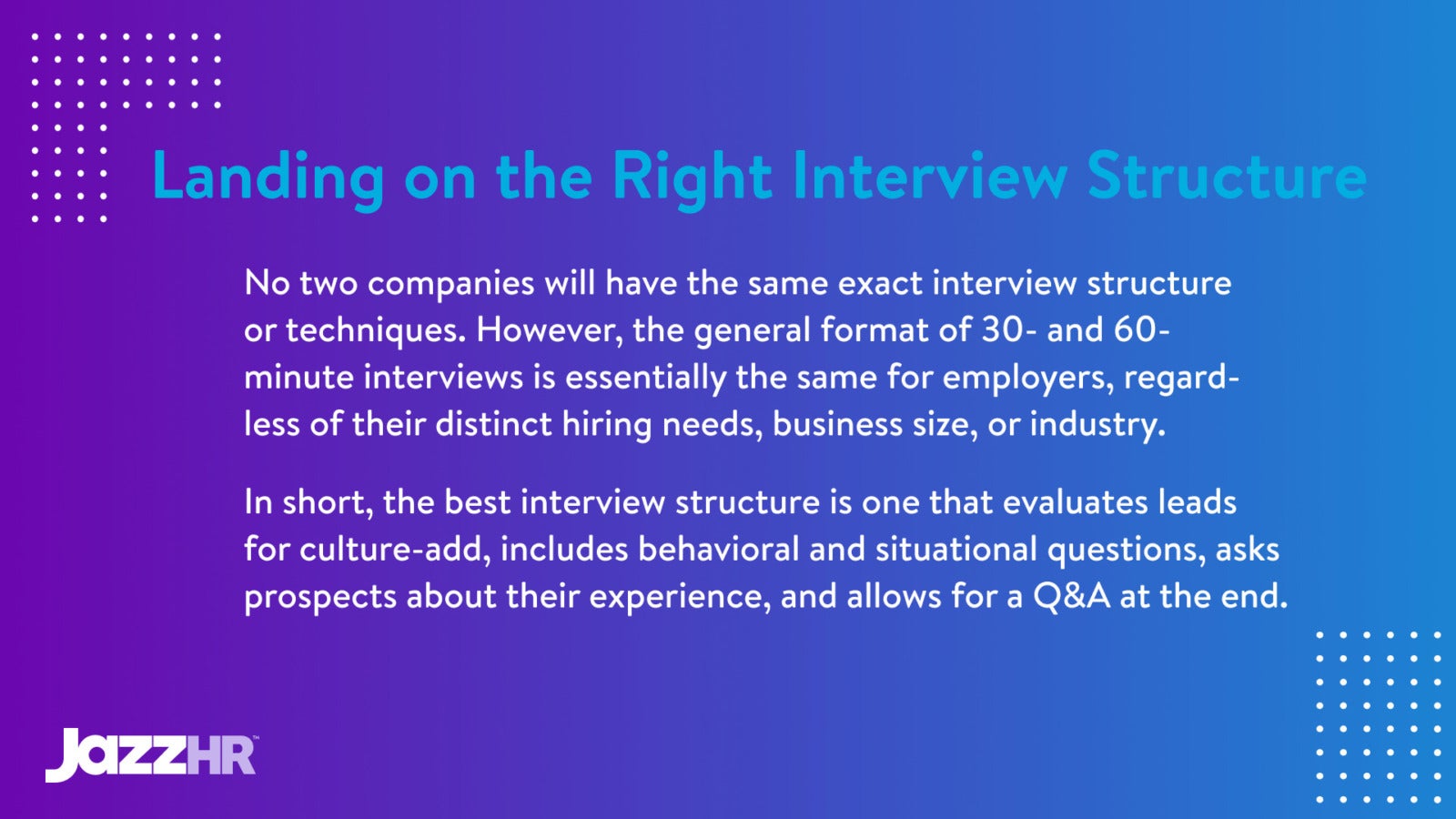Assessing candidates is an art and science.
Hiring teams need a scoring system that helps them evaluate job seekers objectively. Each hiring team member must also share their distinct points of view regarding potential candidates with other interview panelists so they can agree on which candidates deserve job offers.
That’s where an interview scorecard can help.
Why small business recruiting teams use interview scorecards
Equal Employment Opportunity Commission Chair Charlotte A. Burrows recently noted around five in six employers (83%) screen and rank candidates using recruitment automation.
Investing in recruiting software with automation is essential for your small businesses.
Some hiring automation technology can sort qualified candidates from unqualified candidates. This saves your HR team lots of time they can put back into other core HR and hiring tasks.
However, one activity your small business should not allow your recruitment platform to tackle for you is ranking candidates and deciding which ones to hire.
That’s because the human element of hiring is required to make smart decisions about which high-quality candidates to engage, interview, and extend offers to.
Rating job seekers is a manual task, but it’s one that can be carried out efficiently with an applicant tracking system (ATS) that offers an interview scorecard:
- Let’s say your hiring team has a structured interviewing process. That means you ask candidates who interview for the same role the same list of questions. This allows you to compare each job seeker in an organized way and remove the potential for hiring bias.
- After speaking with candidates, some SMBs use an interview scoring sheet to rate candidates without providing any context around their rating decision. Others create Microsoft Word or Google docs where they simply jot down their thoughts on job seekers.
- The more streamlined and consistent way to evaluate candidates you engage is to use a candidate scorecard, also known as an interview scorecard.
- Interview scorecards help recruiters, hiring managers, and others who speak with candidates make data-backed hiring decisions and help them stay focused on candidates’ answers to interview questions.
- Instead of determining whether a person is worth hiring based on whether they maintained eye contact during an interview or their personality traits, interview scorecards feature the same criteria for all roles your company fills.
To streamline this process, you can easily use the JazzHR Candidate Scorecard tool to rank job seekers based on a candidate fit in the company culture, their past work experience, and whether their resumes match the job-specific qualifications tied to a role.
This ensures they make fair and objective hiring decisions based solely on this uniform rating system and data-backed insights shared by hiring team members, not any subjective criteria.
How an interview scorecard can improve your hiring process
Skills-based hiring is on the rise. The approach ensures candidates are assessed and selected based on their expertise and abilities that directly apply for roles they interview for.
To ensure your small business hiring team evaluates and chooses qualified candidates with the required qualifications in a repeatable and consistent way, you need two things:
- An applicant tracking system (ATS) where you can store all candidate info in dedicated profiles that are easily scannable and accessible to all hiring decision-makers
- An interview scorecard that is included in your small business ATS software and allows your hiring team to compare candidates in a fair and unbiased manner
Here are three specific benefits of using an ATS with a candidate scorecard.
1) Keeps recruiting structured and removes bias
“Discussions that lack structure can fail to gain insights into a candidate’s ability to manage responsibilities and excel,” recruitment advisor Sean Fahey wrote for Forbes. “Not only can this leave job seekers with a poor brand experience, but interviewers can also fall victim to confirmation bias.”
However, when your hiring team chats about candidate fit and factor ratings from your interview scorecard in your discussions, you can make smarter, bias-free hiring decisions and ensure all talent you engage for job openings are evaluated using the same criteria.
2) Enables SMBs to make data-backed decisions
A candidate scorecard is a form of data. It provides a numeric grade for each job seeker you speak with that you can use with hiring team feedback to decide which candidates to move to the next stage of your hiring cycle and offer jobs to.
The more hires you make based on the use of an interview scorecard, the more quality-of-hire data you can collect and use to update your SMB’s interviewing approach.
“By correlating your predictions with candidates’ actual performance on the job, you can also get quantitative feedback about your accuracy at assessing different criteria,” executive coach and development consultant Ben Dattner wrote for Harvard Business Review.
3) Ensures the right candidates are ultimately hired
Your quality-of-hire data may show you make bad hiring decisions from time to time.
The reality is, even when you use an interview scorecard and a structured hiring process, there will sometimes be candidates who don’t pan out for reasons you couldn’t think of when interviewing them.
However, you’re far more likely to see a strong candidate “hit rate,” as Ben called it, than hire poor-fit employees at your small business when you judge candidates with a fixed scoring system.
Chat with us today to learn about JazzHR’s Candidate Scorecard and take the tour of our powerful small business recruitment software. Schedule a custom ATS demo today.









